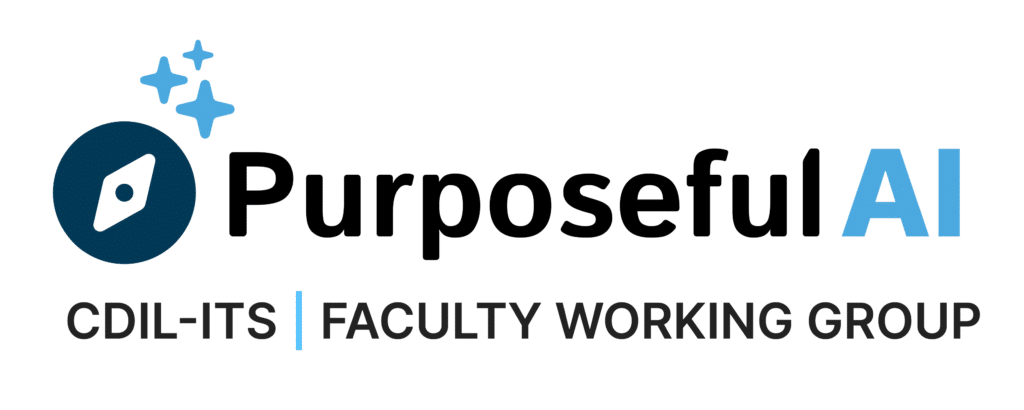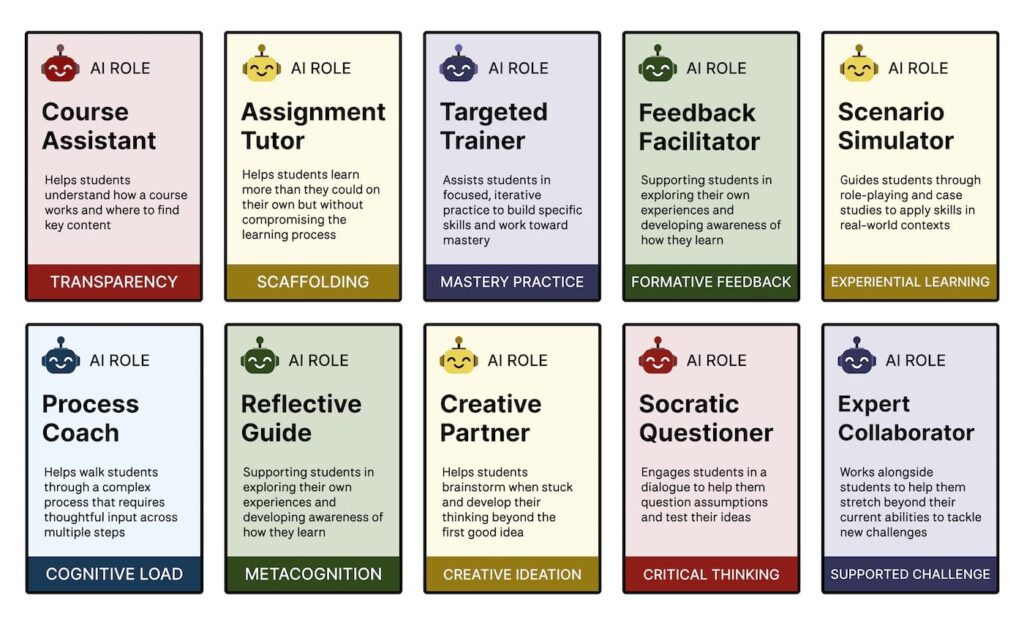This year-long community of practice design is meant to give faculty a hands-on way of exploring AI by building custom chatbots in their courses.

Purpose
This year-long working group invites faculty to take an active role in shaping AI’s impact on education at Boston College. Through hands-on experimentation and collaborative reflection, participants will explore how AI might be purposefully integrated into their teaching in ways that align with their values and enhance student learning.
The goal is to give faculty a learn-by-doing understanding of AI that equips them to make informed decisions about whether AI has a meaningful role to play in their classrooms.
Chatbots are only one way to implement AI in educational settings but they give us an approachable, non-technical mode of experimentation to serve as a common starting point for this particular working group
The working group is a collaboration between the Center for Digital Innovation in Learning (CDIL) and Information Technology Services (ITS)
Format
Building on a chatbot pilot in Spring 2024, the Working Group creates a space for faculty participants to experiment with AI-powered chatbots in their courses for either/and the forthcoming Fall and Spring semesters. ITS is exploring potential approaches to support the scalable and sustainable implementation of GenAI chatbots and is collaborating on pilot initiatives to assess their feasibility and effectiveness.

Participants meet face-to-face every few weeks to talk through their ideas and experiences with their colleagues as part of a design-thinking process facilitated by CDIL and ITS. CDIL has run four successful working groups in the past three academic years. Faculty participants have reported that having the time, space, and support to think, practice, test, and implement ideas about innovations in their teaching practice with colleagues from BC has been a valuable part of their professional development.
In joining the working group, faculty committed to:
- Participating in up to 11 2-hour sessions spread out over the academic year
- Implementing at least one GenAI ChatBot in either/and the Fall and Spring semesters
- Active participation in robust feedback collection of the student learning experience
- Sharing of findings with the BC faculty community
Participants and Projects
Faculty Participants
| Name | School | Department | Title |
|---|---|---|---|
| Junwei “Lucas” Bao | MCAS | Chemistry | Assistant Professor |
| Maria Brisk | Lynch | Teaching, Curriculum, and Society | Professor Emeritus |
| Judy Clair | CSOM | Management and Organization | Professor |
| Kristen Conroy | MCAS | Engineering | Assistant Professor of the Practice |
| Chris Constas | MCAS | Philosophy | Director, Perspectives Program Professor of the Practice |
| Ashley Duggan | MCAS | Communication | Professor |
| Ingu Hwang | MCAS | International Studies | Associate Professor of the Practice |
| Callid Keefe-Perry | CSTM | Assistant Professor | |
| Marta Mirete Hernandez | MCAS | Romance Languages | Lecturer |
| Heather Olins | MCAS | Biology | Associate Professor of the Practice |
| Jerry Potts | CSOM | Management and Organization | Lecturer |
| Njoke Thomas | CSOM | Management and Organization | Assistant Professor |
| Maureen Van Neste | Law | Associate Professor of the Practice |
Facilitators and Contributors
The working group has been planned and facilitated by a core team made up of:
- Tim Lindgren, Assistant Director, Design Innovation, CDIL
- Noël Ingram, Digital Teaching Programs Administrator, CDIL
- Claire Angus, UX and Content Design Consultant, CDIL
- Kyle Fidalgo, Educational Technology Specialist, Law School
The group also benefited from having colleagues from CDIL, ITS, and the CTE who joined the group as both participants and consultants:
- John FitzGibbon, Associate Director, Digital Learning Innovation, CDIL
- Nirmal Trivedi, Assistant Director, Teaching, Learning and Technology, Center for Teaching Excellence
- Ophelia Wang, Graduate Assistant, CDIL
- Peter Salvitti, ITS
- Norm Wright, ITS
Student AI Advisory Group
We also pioneered a new Student AI Advisory Group to explore student perspectives about AI as a counterpart to the Faculty Working Group.
In one session, students from the Student AI working group joined the faculty working group to share their perspectives on AI and give faculty feedback on their project ideas.

